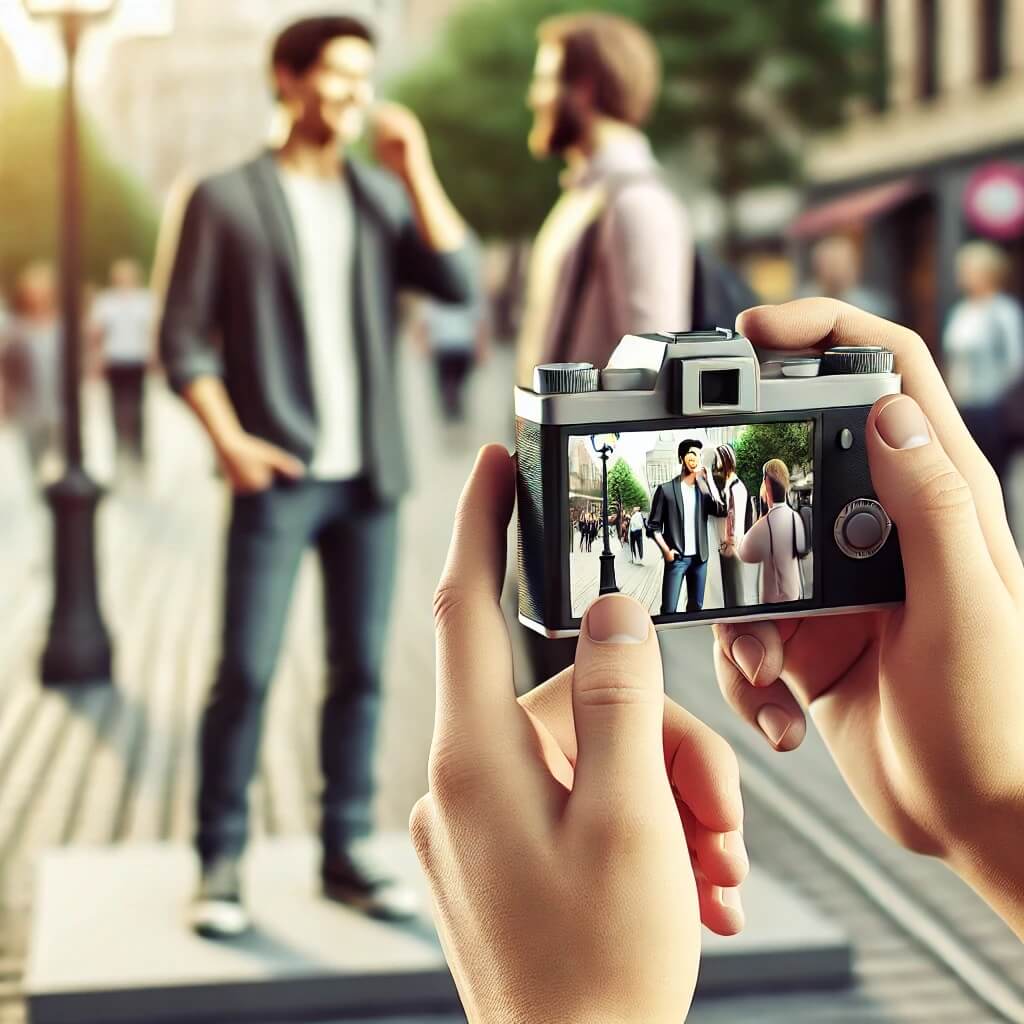With cameras on every smartphone and surveillance all around, it’s becoming increasingly common to find ourselves in photos we didn’t consent to.
Whether it’s a stranger snapping a photo in public or someone taking pictures at a private event, the question of privacy arises:
Can someone legally take a picture of you without your permission?
Here’s an in-depth look at privacy rights, legal boundaries, and steps you can take if someone takes your picture without consent in the United States.
Contents
Understanding Public vs. Private Spaces
In the United States, laws regarding photography generally depend on whether the photograph is taken in a public or private space.
Here’s a breakdown of what’s allowed and where:
Public Spaces
In public areas like streets, parks, or beaches, individuals generally have no expectation of privacy.
This means that, in most cases, someone can legally take a photo of you without asking for permission.
Public photography is broadly protected under the First Amendment, which covers the right to free speech and expression.
Private Spaces
In private locations, such as homes, private businesses, or other non-public areas, people have a higher expectation of privacy.
Photographing someone without their permission in a private setting could be considered a violation of privacy, particularly if the photo is taken in a space where the subject expects not to be observed, like a bedroom or bathroom.
Semi-Public Spaces
Some places, like restaurants, shopping malls, or sports arenas, are private property but open to the public.
Here, property owners may enforce their own rules regarding photography, and individuals may have some reasonable expectation of privacy, depending on the area.
Exceptions and Restrictions on Photography Without Consent
While public photography is usually permitted, there are important exceptions to be aware of:
Harassment or Stalking
Photographing someone without consent with the intent to harass, stalk, or invade their privacy may be illegal, even in public spaces.
Repeated or aggressive photographing can be grounds for a harassment complaint.
Commercial Use
If someone’s photo is taken and used commercially—such as in advertising or promotional materials—without their permission, this could be a violation of their right of publicity.
In the U.S., individuals have the right to control how their image or likeness is used for commercial gain.
Sensitive Locations
Certain places, like schools, hospitals, or government buildings, may have stricter regulations around photography to protect privacy and security.
Unauthorized photos of people in these settings could lead to legal consequences.
What to Do If Someone Takes Your Picture Without Consent
If you find yourself in a situation where someone has taken your photo without permission, here are some steps you can take:
Politely Request They Delete It: Often, a calm and polite request to delete the photo is enough. People are generally cooperative when approached respectfully.
Report Harassment or Stalking: If someone persistently takes photos of you in a way that feels threatening or invasive, report the behavior to authorities. Many states have laws protecting individuals from unwanted photography when it constitutes harassment.
Contact Property Management: If this happens in a semi-public place like a mall, consider notifying the property manager. Many establishments have policies on privacy and may take action if someone is violating them.
Seek Legal Action: For cases where the photo is being used without permission for commercial purposes or in a way that damages your reputation, consider consulting with an attorney. You may be able to pursue a claim under privacy or right-of-publicity laws.
Related content:
50+ ‘Be like an Elephant’ Quotes!
50+ Cute Fishing Quotes!
Privacy and Photography Laws by State
While federal laws provide some guidance, privacy and photography laws vary significantly by state.
Here are a few examples:
California
California has strict privacy laws, particularly around recording and photography in private settings.
California Civil Code Section 1708.8 prohibits taking photos or recordings of people in private settings without consent, especially if it involves intrusive methods.
New York
New York has a right of publicity law that allows individuals to prevent their image from being used for commercial purposes without consent.
Florida
Florida law prohibits using hidden cameras to capture images in places where individuals have a reasonable expectation of privacy, such as bathrooms or dressing rooms.
Check your state’s specific laws to understand your rights and protections better, as some areas offer stronger privacy rights than others.
Photography in the Digital Age: Online Sharing and Social Media
Even if a photo is taken legally, sharing it online without consent can raise separate concerns.
Social media platforms like Facebook, Instagram, and Twitter have their own policies, and each provides options for reporting photos you don’t want posted publicly.
Most platforms will review complaints and may remove content if it violates their community standards or privacy policies.
If a photo is being shared online in a way that feels invasive or harmful, consider the following actions:
Report the Photo: Use the reporting tools provided by the platform to flag the image and explain why it’s problematic.
Request Takedown Assistance: In cases of severe harassment, platforms may offer support through special privacy channels to help with content removal.
Seek Legal Advice for Defamation or Misuse: If the photo is being used to spread false information or damage your reputation, a defamation claim may be possible. Consulting a lawyer can provide insight into your rights.
Final Thoughts
In today’s digital world, it’s increasingly common to encounter situations where your picture may be taken without consent.
Understanding the boundaries of public and private spaces, as well as your legal rights, can help you navigate these situations.
While some photography may be legally permissible, everyone has a right to feel comfortable and respected.
If you find yourself in an uncomfortable situation, remember that there are steps you can take to protect your privacy.
Ultimately, balancing the right to privacy with the freedom of expression requires understanding, respect, and open communication.
Being aware of your rights and setting clear boundaries allows you to protect your privacy and personal space, whether in the physical or digital world.

I’m a MA, (CMT) Certified Massage Therapist, Licensed Massage Therapist (LMT), and Reiki Master — I’m a licensed massage therapist with over 10 years of experience in the industry.

